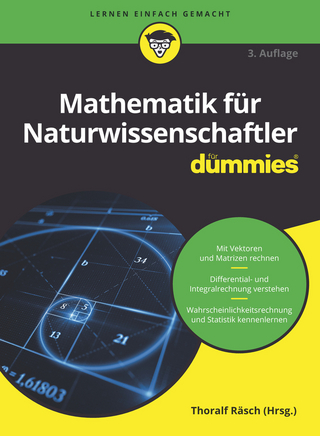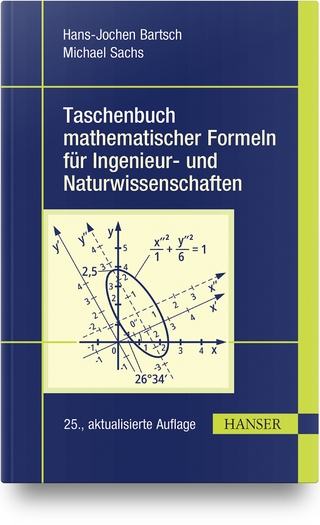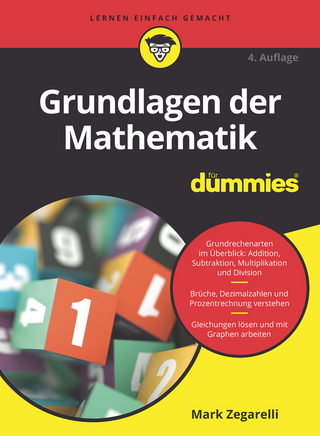
Augmented and Virtual Reality in Mathematics Education
Springer Fachmedien Wiesbaden GmbH (Verlag)
978-3-658-45270-4 (ISBN)
Augmented and virtual reality (AR/VR) are technologies of increasing importance in our society. In the field of mathematics education, these innovative technologies may offer a wide range of opportunities to support immersive, individual, and active learning processes. At the same time, many new challenges arise that need to be mastered by teachers and students in the classroom. With this book we want to contribute to the discourse by presenting innovative insights by bringing parties from research and practice together. The papers cover a wide range of relevant topics including cooperation and communication, STEM and modelling, development and application of design criteria, spatial geometry and imagination or teacher-trainings. The contributions include in-depth theoretical considerations, concrete developed applications and learning environments, and findings from empirical studies.
Dr. Frederik Dilling is a research associate in mathematics education at the University of Siegen. His research focuses on digitization and interdisciplinarity in mathematics education.
Prof. Dr. Ingo Witzke is professor for mathematics education at the University of Siegen. His research group investigates the development of mathematical knowledge in empirical contexts.
Immersive Learning, Immersive Education, and Immersive Teaching - A Note on Terminology, Correlates, and Classroom Integration.- Specification of AR experiences in mathematics education - from interactive digital worksheets to the three-dimensional coordinate system and new perspectives in modeling.- Augmented Reality and Virtual Reality for Teaching Mathematics: A Systematic Review of Current Developments.- VR STEM Trail: a math trail-based STEM Education using virtual reality technology for learning mathematical modelling.- GeoGebra Augmented Reality with mathematics undergraduate students: a computational fuzzy semiotics analysis.- Action-based embodied learning through marker-based AR - Design of a geometry app.- Verbal and nonverbal communication during VR experiences - a case study on analytic geometry.- Fostering Algorithmic Thinking in Mathematics Education With AR.- GeoGebra AR in Cooperative Settings.
| Erscheinungsdatum | 14.12.2024 |
|---|---|
| Reihe/Serie | MINTUS – Beiträge zur mathematisch-naturwissenschaftlichen Bildung |
| Zusatzinfo | XI, 163 p. 56 illus. |
| Verlagsort | Wiesbaden |
| Sprache | englisch |
| Maße | 148 x 210 mm |
| Themenwelt | Mathematik / Informatik ► Mathematik ► Allgemeines / Lexika |
| Schlagworte | augmented reality • Design Criteria for Learning with Digital Technologies • Developing Mathematical Apps • immersive learning • Interaction in the classroom • mathematics education • Virtual Reality • Visualizing Mathematics |
| ISBN-10 | 3-658-45270-6 / 3658452706 |
| ISBN-13 | 978-3-658-45270-4 / 9783658452704 |
| Zustand | Neuware |
| Informationen gemäß Produktsicherheitsverordnung (GPSR) | |
| Haben Sie eine Frage zum Produkt? |
aus dem Bereich


